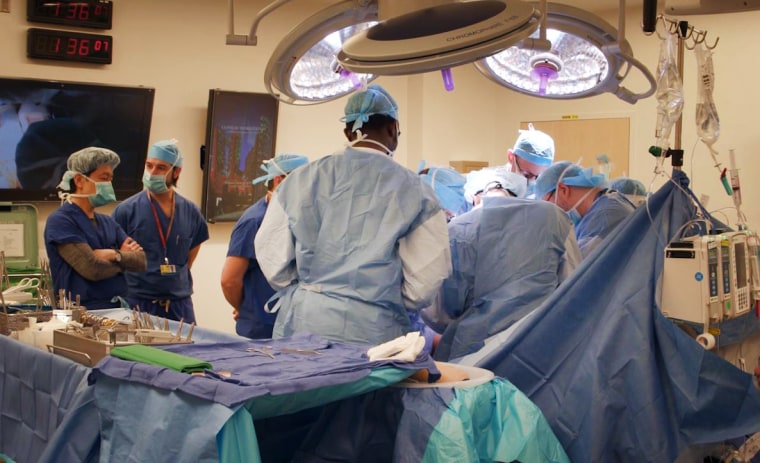A veteran who lost his legs and genitals when a roadside bomb exploded in Afghanistan is doing well a year and a half after undergoing the first full total penis and scrotum transplant.
His surgeons at Johns Hopkins in Baltimore provided an update about the man's condition in a letter published Wednesday in the New England Journal of Medicine.
"He's doing very well," said Dr. Rick Redett, a professor of plastic and reconstructive surgery at Johns Hopkins School of Medicine. "The graft has taken nicely. Rejection hasn't been much of an issue, and he has very good return of function."
That function includes the ability to have erections and orgasm, as well as urinate standing up (with the aid of his leg prostheses).
Redett told NBC News that the patient said "it's the first time he's felt normal in a long time."
He is unable to produce sperm because surgeons did not transplant testicles. Any sperm generated from donated testes would be genetically related to the donor, not the transplant recipient.
The veteran is one of 1,367 male soldiers who sustained genital injuries from 2001 to 2013 in Afghanistan and Iraq, according to a previous study in The Journal of Urology. Not all had the kind of trauma that would require a penile transplant, but many are left with significant wounds.
"With the changes in body armor and the improvements in medical care in the field, IEDs blow off your legs and your genitalia, but you survive," Redett said.
There have been four other successful penile transplants reported worldwide. In 2016, doctors at Massachusetts General Hospital in Boston helped a 64-year-old man who'd lost his penis to cancer. Doctors in China and South Africa have also performed the complicated surgery.
Johns Hopkins surgeons said the veteran has returned to school full-time and continues to live independently.
Follow NBC HEALTH on Twitter & Facebook.

